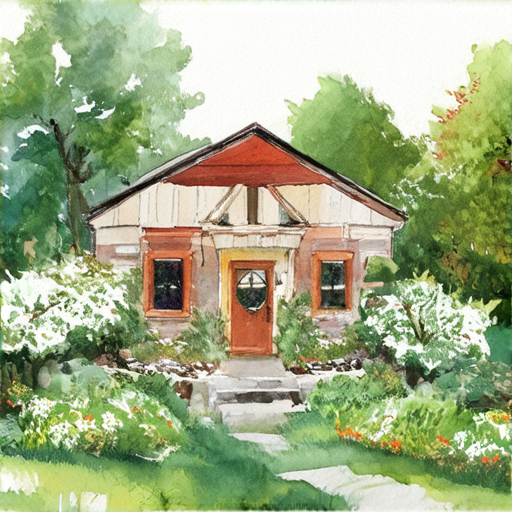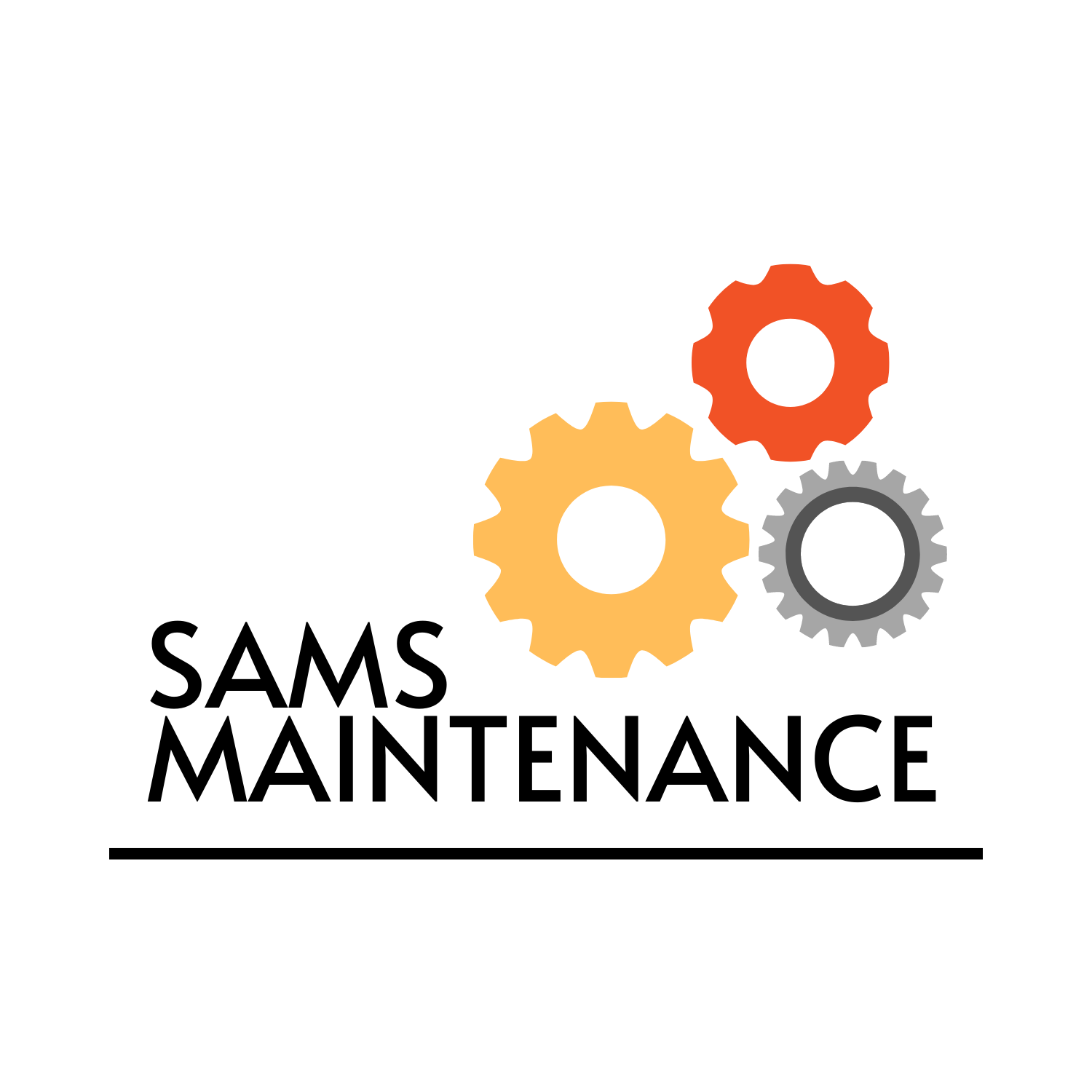As a homeowner, maintaining a safe and efficient living space is crucial for both your physical and mental well-being. However, with numerous responsibilities competing for your attention, it’s easy to overlook essential home care tasks, leading to costly repairs and potential safety hazards. In this comprehensive guide, we’ll walk you through a prioritized home maintenance checklist, providing you with actionable tips and strategies to save time, money, and stress in the long run.

Prioritizing Home Maintenance Tasks
To stay ahead of costly repairs and ensure a safe living space, it’s essential to prioritize your home maintenance tasks effectively.
-
Conduct Regular Inspections
Start by conducting regular inspections of your home’s systems, including plumbing, electrical, HVAC, and roofing.
- Check for signs of wear and tear, leaks, and damage.
- Identify potential issues before they become major problems.
- Schedule repairs and replacements as needed.
-
Create a Maintenance Schedule
Develop a maintenance schedule that outlines tasks to be performed on a monthly, quarterly, semiannual, and annual basis.
- Monthly: Check and replace air filters, inspect smoke detectors, and clean gutters.
- Quarterly: Inspect roof flashing, check for pest infestations, and clean out dryer vents.
- Semiannually: Inspect and clean HVAC systems, check for water damage, and inspect fire extinguishers.
- Annually: Inspect and repair roofs, inspect and clean chimneys, and inspect and replace smoke detector batteries.
-
Address Small Issues Promptly
Don’t ignore small issues, as they can quickly escalate into major problems.
- Fix leaky faucets and toilets promptly to prevent water damage.
- Replace worn-out door seals and weatherstripping to prevent energy losses.
- Inspect and repair damaged caulk and grout around windows and doors.
-
Consider Hiring Professionals
If you’re unsure about performing certain tasks or lack the necessary expertise, consider hiring professionals.
- Hire licensed electricians to inspect and repair electrical systems.
- Hire certified plumbers to inspect and repair plumbing systems.
- Hire experienced contractors to perform major repairs and replacements.
-
Keep Records and Track Progress
Keep records of your maintenance activities, including dates, tasks performed, and costs incurred.
- Track progress and identify areas for improvement.
- Review records regularly to ensure compliance with local regulations and manufacturer recommendations.
By following these steps, you’ll be able to prioritize your home maintenance tasks effectively, preventing costly repairs and ensuring a safe living environment.
Essential Home Care Tips and Tricks Every Homeowner Needs to Know
To save time, money, and stress in the long run, it’s crucial to have a solid understanding of home care tips and tricks.
-
Conduct Regular Maintenance Checks
Set aside time each month to inspect your home’s systems, appliances, and fixtures for signs of wear and tear. This proactive approach can help prevent costly repairs down the road.
-
Create a Home Maintenance Schedule
Develop a schedule that outlines tasks and deadlines for routine maintenance, seasonal upkeep, and deep cleaning. Staying organized will help you stay on top of tasks and avoid last-minute scrambles.
-
Invest in Quality Tools and Equipment
A well-stocked toolbox and reliable equipment can make a significant difference in the efficiency and effectiveness of your home maintenance efforts.
-
Learn Basic DIY Skills
Acquire fundamental DIY skills, such as plumbing, electrical work, and carpentry, to tackle minor repairs and projects around the house.
-
Stay Informed About Local Building Codes and Regulations
Familiarize yourself with local building codes, zoning laws, and regulations to ensure compliance and avoid potential fines or penalties.
-
Prioritize Energy Efficiency
Implement energy-saving measures, such as installing LED bulbs, sealing air leaks, and upgrading to energy-efficient appliances, to reduce utility bills and minimize environmental impact.
-
Maintain a Clean and Organized Garage
A clutter-free garage can help prevent accidents, reduce stress, and increase productivity. Invest in storage solutions and establish a regular cleaning routine to keep your garage in tip-top shape.
-
Don’t Forget About Pest Control
Regularly inspect your home for signs of pest infestations, and take proactive steps to prevent unwanted critters from taking up residence.
-
Keep Your Gutters Clean and Clear
Clogged gutters can lead to water damage, foundation issues, and other problems. Schedule regular gutter cleanings to ensure proper water flow and prevent costly repairs.
-
Take Advantage of Seasonal Upkeep Opportunities
Capitalizing on seasonal opportunities, such as spring cleaning and fall leaf cleanup, can help maintain your home’s appearance, functionality, and overall value.
-
Consider Hiring a Professional for Complex Tasks
When faced with complex or high-risk tasks, don’t hesitate to hire a professional contractor or handyman to ensure the job is done safely and correctly.
By incorporating these essential home care tips and tricks into your routine, you’ll be better equipped to save time, money, and stress in the long run.

Seasonal Home Care Tasks to Keep Your Home Safe, Efficient, and Well-Maintained
To stay ahead of seasonal changes and ensure your home remains safe, efficient, and well-maintained, focus on these critical home care tasks:
-
Winter Season (December to February)
- Inspect and repair roof leaks, gutters, and downspouts to prevent water damage.
- Clean and inspect heating systems, chimneys, and fireplaces to ensure safe operation.
- Seal drafts around windows, doors, and electrical outlets to conserve energy.
- Prevent frozen pipes by insulating exposed pipes and letting cold water drip from faucets.
-
Spring Season (March to May)
- Clean and inspect air conditioning units, vents, and ducts to ensure efficient cooling.
- Check and replace worn-out weatherstripping around doors and windows.
- Power wash decks, patios, and sidewalks to remove dirt and debris.
- Inspect and repair damaged or rotten wood on fences, decks, and outdoor structures.
-
Summer Season (June to August)
- Clean and inspect pool equipment, filters, and pumps to ensure safe operation.
- Trim trees and shrubs to maintain clearance from power lines and windows.
- Check and replace worn-out door sweeps and threshold seals.
- Run ceiling fans and whole-house fans to circulate air and reduce energy consumption.
-
Autumn Season (September to November)
- Clean and inspect furnace filters, vents, and ducts to ensure efficient heating.
- Seal gaps around windows, doors, and electrical outlets to prevent heat loss.
- Drain and store hoses, sprinklers, and irrigation systems to prevent freezing.
- Prepare your home for winter by installing storm windows and doors.
By focusing on these seasonal home care tasks, you’ll be able to identify potential issues before they become major problems, saving you time, money, and stress in the long run.
At Sams Maintenance, we’re committed to helping you keep your home safe, efficient, and well-maintained all year round. Our team of experts provides personalized guidance and support to ensure your home runs smoothly and efficiently.
For more information on seasonal home care tasks and to schedule a consultation with one of our experts, visit our website or give us a call today!

Extending Property Lifespan through Effective Home Care Habits
As a homeowner, taking proactive steps to maintain your property can significantly extend its lifespan and reduce maintenance costs over time.
-
Regular Cleaning and Inspection
Maintaining a clean and tidy home is essential for extending its lifespan. Regular cleaning helps prevent dirt and grime buildup, which can damage surfaces and compromise structural integrity.
Inspect your home regularly for signs of wear and tear, addressing issues promptly to prevent minor problems from becoming major headaches.
-
Seasonal Upkeep and Repairs
Perform seasonal tasks such as gutter cleaning, roof inspections, and HVAC maintenance to ensure your home remains in optimal condition.
Addressing small issues before they escalate into costly repairs can save you thousands of dollars in the long run.
-
Pest Control and Prevention
Preventing pest infestations is crucial for maintaining a healthy home environment.
Seal entry points, store food properly, and eliminate standing water to discourage pests from making themselves at home.
-
Energy Efficiency and Conservation
Implement energy-efficient measures such as installing low-flow fixtures, sealing air leaks, and upgrading to LED lighting to reduce energy consumption and lower utility bills.
Conserve water by fixing leaky faucets and installing low-flow showerheads to minimize waste and save money.
-
Landscaping and Outdoor Maintenance
A well-maintained lawn and outdoor space can enhance your home’s curb appeal and protect its foundation.
Keep trees and shrubs trimmed, install a French drain, and inspect your home’s exterior for signs of damage or wear.
-
Indoor Air Quality and Ventilation
Maintain good indoor air quality by replacing air filters regularly, using a dehumidifier, and ensuring proper ventilation in kitchens and bathrooms.
Reduce allergen exposure by dusting and vacuuming frequently, and consider investing in an air purifier for added peace of mind.
-
Fire Safety and Prevention
Install smoke detectors and carbon monoxide detectors on every level of your home, and ensure working fire extinguishers are easily accessible.
Store flammable materials safely, keep emergency phone numbers handy, and conduct regular fire drills to stay prepared.
-
Homeowner Education and Community Involvement
Stay informed about local building codes, zoning regulations, and community initiatives that impact your home’s value and livability.
Participate in neighborhood watch programs, join local home owner associations, and attend workshops or seminars to enhance your knowledge and skills.
-
Scheduling Regular Maintenance
Create a schedule for routine maintenance tasks, setting reminders for seasonal chores and annual inspections.
Consider hiring professionals for complex tasks or those requiring specialized expertise, ensuring your home receives the attention it needs to thrive.
By incorporating these effective home care habits into your daily routine, you’ll be well on your way to extending your property’s lifespan and reducing maintenance costs over time.
Remember to always follow best practices and consult reputable sources for guidance on specific tasks or concerns.
Top Home Care Tips and Strategies
To avoid common maintenance mistakes and ensure a worry-free living space, homeowners can implement the following top home care tips and strategies:
-
Regular Cleaning and Inspection
Establish a routine cleaning schedule to keep your home clean and free of dust, dirt, and allergens. Inspect your home regularly for signs of wear and tear, and address any issues promptly.
-
Maintaining Appliances and Systems
Regularly check and maintain your appliances, plumbing systems, and HVAC units to ensure they are functioning properly and efficiently. Replace worn-out parts and filters to prevent breakdowns and energy waste.
-
Weatherproofing and Sealing
Check your home’s exterior for gaps and cracks, and seal them to prevent water damage and air leaks. Install weatherstripping around doors and windows to keep cold air out and warm air in.
-
Pest Control and Prevention
Keep your home pest-free by sealing entry points, removing standing water, and storing food and trash properly. Consider hiring a professional pest control service if you have a severe infestation.
-
Fire Safety and Prevention
Install smoke detectors and carbon monoxide detectors in your home, and test them monthly. Keep flammable materials away from heat sources, and store fire extinguishers in easily accessible locations.
-
Seasonal Upkeep and Preparation
Prepare your home for changing seasons by inspecting and maintaining your roof, gutters, and downspouts. Store winter gear and equipment in a dry, secure location, and consider hiring a professional to inspect and repair your home’s foundation.
-
DIY Repairs and Improvements
Learn basic DIY skills to tackle small repairs and improvements, such as fixing leaky faucets, patching holes in walls, and painting rooms. Consider taking online courses or workshops to improve your skills.
-
Home Maintenance Budgeting and Planning
Create a budget and plan for regular home maintenance expenses, including repairs, replacements, and upgrades. Set aside funds for emergency situations and unexpected expenses.
-
Professional Help and Support
Don’t hesitate to seek professional help when needed, whether it’s for a complex repair, a major renovation, or a specialized task. Research local contractors and services, and read reviews to find reliable professionals.
-
Homeowner Education and Resources
Stay informed about home maintenance and repair techniques through online tutorials, books, and workshops. Join homeowner associations or online forums to connect with others who share your interests and concerns.
By implementing these top home care tips and strategies, homeowners can enjoy a worry-free living space, save money on costly repairs, and increase their property’s value over time.

Simple Yet Effective Daily Home Care Habits
Discover expert-approved home care tips to transform your living space into a haven of safety, health, and energy efficiency.
-
Establish a Regular Cleaning Routine
Create a schedule to clean high-touch areas, such as doorknobs, light switches, and countertops, to prevent the spread of germs and bacteria.
Use eco-friendly cleaning products and microfiber cloths to reduce chemical usage and dust particles.
-
Conduct Seasonal Deep Cleans
Schedule deep cleans for your home during seasonal changes to remove dirt, dust, and allergens that accumulate over time.
Focus on areas like carpets, upholstery, and window treatments, which can harbor allergens and pollutants.
-
Practice Good Ventilation
Ensure proper ventilation in your home by opening windows, using fans, and installing a whole-house fan to reduce moisture buildup.
This helps prevent mold growth, reduces humidity levels, and improves indoor air quality.
-
Monitor and Maintain Your HVAC System
Regularly inspect and replace air filters to ensure optimal airflow and reduce energy consumption.
Consider upgrading to a programmable thermostat to automate temperature adjustments and optimize heating and cooling efficiency.
-
Implement Energy-Efficient Lighting
Replace traditional incandescent bulbs with LED or CFL options to reduce energy consumption and prolong bulb lifespan.
Install smart lighting systems to automate lighting schedules and adjust brightness levels based on occupancy and ambient light.
-
Conserve Water and Reduce Waste
Fix leaky faucets and install low-flow showerheads to minimize water waste and reduce your water bill.
Implement recycling programs and composting initiatives to reduce household waste and promote sustainability.
-
Maintain Your Plumbing System
Regularly inspect and repair leaks, clogs, and worn-out pipes to prevent water damage and costly repairs.
Consider installing a water filtration system to improve drinking water quality and reduce contaminants.
-
Keep Your Yard Clean and Well-Maintained
Rake leaves, trim trees, and mow your lawn regularly to prevent debris accumulation and maintain a tidy appearance.
Aerate your lawn periodically to promote healthy grass growth and reduce soil compaction.
-
Stay Organized and Decluttered
Purge unnecessary items, donate gently used goods, and implement storage solutions to maintain a clutter-free living space.
Label and categorize stored items to facilitate easy access and reduce stress.
By incorporating these simple yet effective daily home care habits into your routine, you’ll be well on your way to maintaining a safe, healthy, and energy-efficient living space.

0 Comments